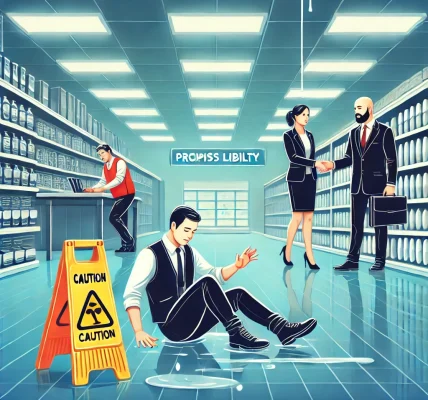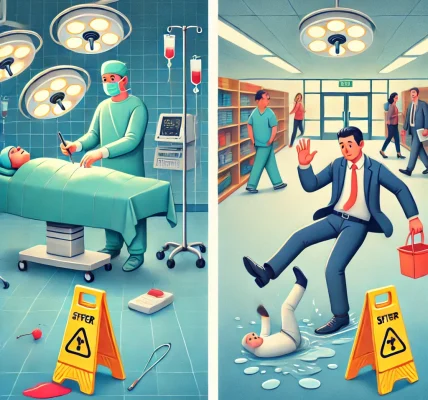When you’re injured due to someone else’s negligence, you may face a critical decision: should you settle your personal injury claim or take it to trial? Each option has its advantages and drawbacks, and understanding them can help you make an informed choice.
In this comprehensive guide, we’ll explore the key differences between personal injury settlements and trials, the pros and cons of each, and factors to consider when deciding which route to take.
Understanding Settlements and Trials
Before diving into the details, let’s clarify what settlements and trials entail in a personal injury case.
What Is a Settlement?
A settlement is a resolution between the injured party (plaintiff) and the at-fault party (defendant) outside of court. The defendant, typically represented by an insurance company, agrees to pay compensation in exchange for the plaintiff dropping the lawsuit.
Settlements can occur at any stage of the claims process, from before filing a lawsuit to just before or even during a trial.
What Is a Trial?
A trial is a formal legal proceeding where both sides present their case before a judge or jury. The court determines whether the defendant is liable and, if so, how much compensation should be awarded.
Trials can be lengthy and costly, but they provide an opportunity to seek full compensation when a fair settlement cannot be reached.
Pros and Cons of Settlements
Pros of Settlements
- Faster Resolution – Settlements typically conclude much quicker than trials, often within a few months to a year.
- Lower Legal Costs – Since settlements avoid prolonged litigation, legal fees and court expenses are significantly lower.
- Less Stress – Trials can be emotionally exhausting. Settlements provide a less stressful alternative.
- Guaranteed Compensation – A settlement ensures you receive some compensation rather than risking an unfavorable trial outcome.
- Confidentiality – Settlement agreements often include confidentiality clauses, keeping details private.
Cons of Settlements
- Lower Compensation – Insurance companies often push for lower payouts, meaning you might not get the full amount you deserve.
- No Admission of Fault – The defendant may not admit wrongdoing, which can be unsatisfying for some plaintiffs.
- Final Decision – Once you accept a settlement, you cannot seek additional compensation later, even if your injuries worsen.
Pros and Cons of Trials
Pros of Trials
- Potential for Higher Compensation – Juries may award larger verdicts, including punitive damages, which are not available in settlements.
- Public Accountability – A trial forces the defendant to face public scrutiny for their actions.
- Legal Precedent – A court ruling can set a legal precedent that benefits others facing similar situations.
Cons of Trials
- Longer Process – Trials can take months or even years to reach a conclusion.
- Higher Costs – Attorney fees, expert witnesses, and court expenses can be costly.
- Uncertainty – There is no guarantee of winning, and the jury might award less than a settlement offer—or nothing at all.
- Emotional Toll – Reliving the accident and testifying in court can be emotionally draining.
Factors to Consider When Deciding
1. Strength of Your Case
- If you have strong evidence proving the defendant’s negligence and liability, a trial may be worth considering.
- If evidence is weak, a settlement might be the safer option.
2. Willingness to Wait
- If you need immediate compensation for medical bills and lost wages, settling quickly may be ideal.
- If you can afford to wait for a potentially larger payout, a trial might be better.
3. Financial and Emotional Costs
- Legal fees and stress levels should be weighed when deciding between settlement and trial.
4. Insurance Policy Limits
- If the defendant’s insurance policy has a low limit, a trial might not be worthwhile since you may not collect a higher amount even if you win.
When Should You Settle?
A settlement is often the best choice when:
- The offer fairly compensates your damages.
- You want to avoid the stress of a trial.
- You need compensation quickly.
- The defendant’s policy limits restrict potential payouts.
When Should You Go to Trial?
A trial may be the right choice when:
- The insurance company refuses to make a fair offer.
- You have strong evidence supporting your case.
- You believe you can win a significantly higher amount than the settlement offer.
- You want to hold the defendant publicly accountable.
Conclusion
There is no one-size-fits-all answer when deciding between a settlement and a trial in a personal injury case. Settlements offer a quicker, less stressful resolution, while trials can provide higher compensation and justice.
Consulting with an experienced personal injury lawyer can help you weigh your options and make the best decision for your unique situation. Always consider the financial, emotional, and legal implications before choosing the path that best serves your interests.




